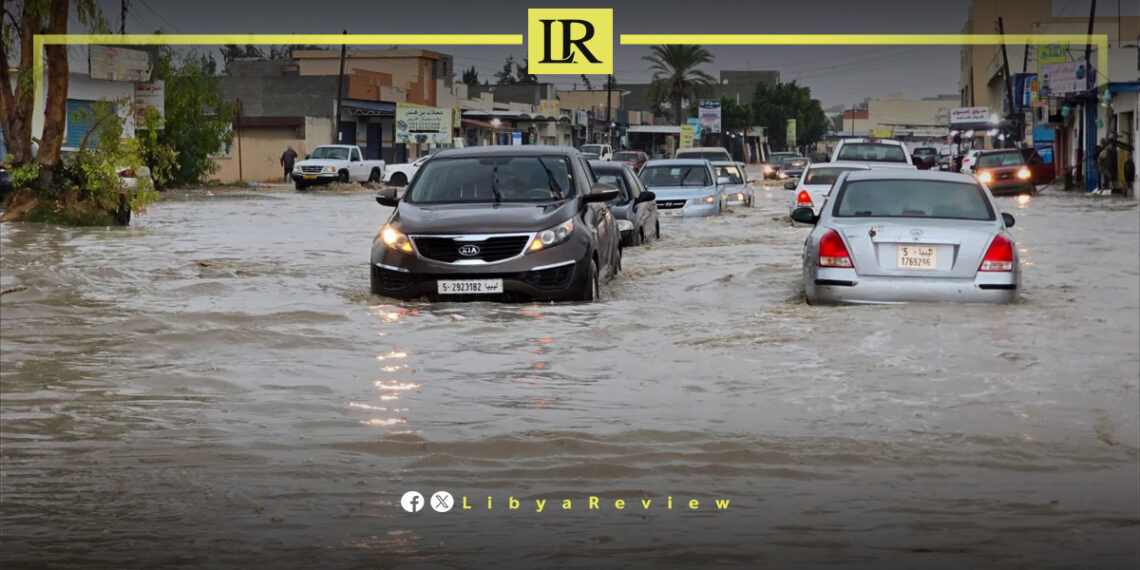Osman Al-Meligta, the head of Libya’s National Safety Authority, stated that the city of Tarhuna is struggling to cope with recent floods due to having only one bulldozer available, which has hindered efforts to recover bodies and manage the aftermath of the floods that struck the city.
During a press conference held on Saturday to address the impacts of the floods in parts of western Libya, Al-Meligta added that Tarhuna Hospital is in a state of severe disrepair, having been established at the confluence of two valleys in the 1970s.
He further mentioned that the majority of the governmental bodies responsible for dealing with floods in the city lack four-wheel drive vehicles, essential for navigating the affected areas. These bodies include the General Electricity Company of Libya, the Emergency Medical Services, the Water Company, and the Tarhuna Security Directorate.
Western Libya experienced heavy rainfall and floods last Thursday and Friday, causing valley streams to flow heavily, closing several major roads, and resulting in several fatalities in Tarhuna and Bani Walid.
Libya has been in chaos since a NATO-backed uprising toppled longtime leader Muammar Gaddafi in 2011. The county has for years been split between rival administrations.
Libya’s economy, heavily reliant on oil, has suffered due to the ongoing conflict. The instability has led to fluctuations in oil production and prices, impacting the global oil market and Libya’s economy.
The conflict has led to a significant humanitarian crisis in Libya, with thousands of people killed, and many more displaced. Migrants and refugees using Libya as a transit point to Europe have also faced dire conditions.
The planned elections for December 2021 were delayed due to disagreements over election laws and the eligibility of certain candidates. This delay has raised concerns about the feasibility of a peaceful political transition.
Despite the ceasefire, security remains a significant concern with sporadic fighting and the presence of mercenaries and foreign fighters. The unification of the military and the removal of foreign forces are crucial challenges.


